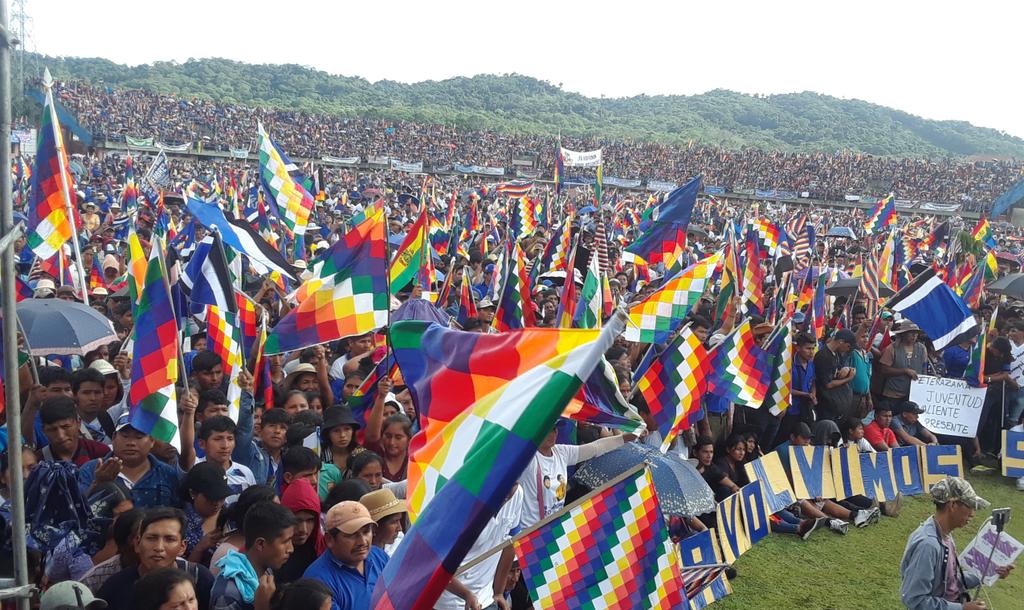
The new Bolivian regime’s Government Minister Arturo Murillo is threatening a military invasion of the eastern lowland region of Chapare, heartland of support for ousted president Evo Morales, which has become a de facto autonomous zone outside the control of La Paz. Murillo implied to reporters earlier this month that planned new elections for Bolivia will not be able to proceed until control over Chapare has been re-established. “We cannot permit a part of Bolivian territory without presence of the state, without presence of police… If there is no respect for the rule of law, this complicates the question of elections.” He warned the region’s residents: “Be careful of being too tough, or there won’t be elections.” (Cuidado que por ponerse duros no tengan elecciones.) He said that “narco-terrorists” are among the cocalero syndicates that have effectively seized power in the region, and that Chapare had become a “lawless territory.” (Los Tiempos de Cochabamba, Dec. 11)
Morales initially took refuge in Chapare after being ousted in La Paz, before accepting temporary exile in Mexico. In the aftermath of the Nov. 11 ouster, the Six Federations of the Tropic of Cochabamba, the cocalero alliance formerly led by Morales, mobilized to resist the new regime. The region was cut off by cocalero roadblocks, and nine National Police stations were burned. The roadblocks have since been relaxed, but large areas of the province are without any National Police presence and effectively independent. Jaime Zurita, police commander of Cochabamaba department, admitted that his forces had lost control of Chapare province. “If there are no conditions, we cannot send the police to work there,” he said. (Pagina Siete, La Paz, Dec. 7)
Morales arrived in Argentina Dec. 13, where the government says he has been granted asylum. President Alberto Fernandez has rejected an extradition request by Murillo, who is seeking to try Morales on “terrorism” charges. Fernandez said Dec. 19 that his government “will not hand over for any reason” the former Bolivian president. (TeleSur, Dec. 19; La Nación, Buenos Aires, Dec. 13)
Mexico’s Exterior Secretary Marcelo Ebrard meanwhile accused the Bolivian regime of ramping up its police presence outside his government’s embassy in La Paz, and threatened to open a case before the International Court of Justice. Bolivia’s Foreign Minister Karen Longaric said such a move would be a “mistake” based on a “legal fallacy.” (Global News, Dec. 26; Reuters, Dec. 23)
Photo: Ollie Vargas via Twitter




